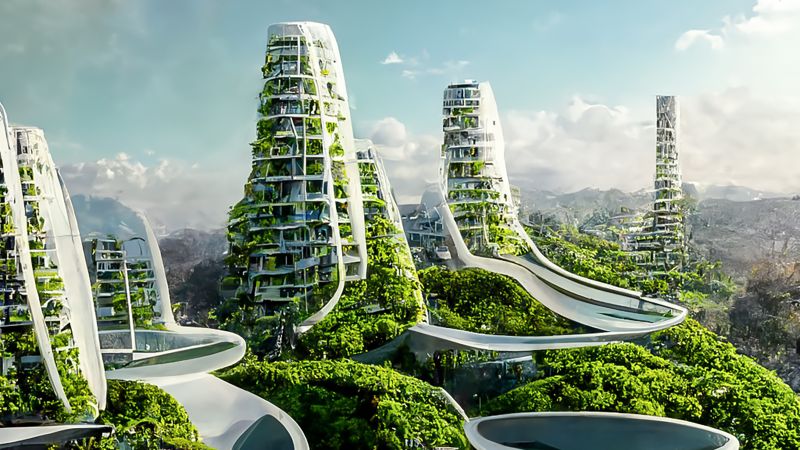Future Innovations That Will Redefine Smart Living explores the breathtaking advancements that are reshaping how we experience our homes and daily routines. From cutting-edge smart home technologies to sustainable innovations, the future of living is becoming increasingly automated and environmentally friendly. With AI at its core, these innovations promise to enhance comfort, security, and health while making our lives easier and more enjoyable.
As we delve deeper, we’ll uncover the latest in smart appliances that not only conserve energy but also seamlessly integrate into our lives. Expect to see how smart irrigation systems revolutionize gardening, and how AI personal assistants are set to change the way we manage our households. It’s an exciting time where technology meets sustainability, paving the way for a future that prioritizes wellness and efficiency.
Future Innovations That Will Redefine Smart Living
In today’s fast-paced world, smart living is no longer a concept of the future; it has become a present reality. The advancements in technology are reshaping how we live, ensuring comfort, security, and sustainability. From smart homes to health technologies, innovations are transforming our daily routines, making our lives more manageable and enjoyable. Let’s delve into the various aspects of smart living that are set to redefine our future.
Smart Home Technology Advancements
The latest smart home devices are designed to enhance both comfort and security for users. Innovations such as smart thermostats, security systems, and home automation hubs are becoming increasingly popular. These devices not only provide convenience but also offer enhanced security features that offer peace of mind.
Smart lighting systems have taken this a step further by integrating with artificial intelligence (AI) to optimize energy efficiency. These systems can learn from user behavior and adjust lighting based on occupancy and time of day, significantly reducing energy consumption.
Voice-activated technology is also making waves in smart homes. Virtual assistants like Amazon Alexa and Google Assistant allow users to control various devices with simple voice commands, streamlining daily tasks such as turning on lights, setting alarms, or playing music. Their versatility makes them indispensable in modern homes.
Sustainable Innovations in Smart Living
As the world shifts towards sustainability, smart appliances are playing a critical role in promoting energy conservation. Devices such as smart refrigerators and washing machines are designed to use less energy while maximizing efficiency. These appliances can optimize their operations based on energy availability and user preferences.
Renewable energy sources are becoming a trend in smart homes, with solar panels and wind turbines increasingly integrated into residential setups. This not only reduces dependency on fossil fuels but also lowers energy costs for homeowners.
Smart irrigation systems are revolutionizing sustainable gardening practices. These systems use sensors and weather data to optimize watering schedules, ensuring that plants receive just the right amount of water while conserving this precious resource.
The Role of AI in Daily Life

AI-driven personal assistants are becoming essential in managing household chores. These technologies can schedule tasks, automate processes, and even handle shopping lists, freeing up time for users to focus on more important aspects of their lives.
AI can also predict and adapt to user preferences, leading to personalized experiences in various aspects of smart living. For instance, smart thermostats can learn individual temperature preferences and adjust automatically, creating a comfortable living environment tailored to the user.
When comparing different AI platforms in smart living environments, Google Assistant, Amazon Alexa, and Apple’s Siri each offer unique features, functionalities, and integrations with smart home devices, allowing users to choose a system that best fits their needs.
Health and Wellness Technology

The integration of smart wearables in health monitoring is a significant development in technology. Devices such as smartwatches and fitness trackers provide real-time data on health metrics like heart rate, sleep patterns, and activity levels, enabling users to make informed health decisions.
Smart kitchens are contributing to healthier eating habits by suggesting recipes based on available ingredients and dietary preferences. These innovations encourage healthier cooking practices and meal planning.
Numerous apps are also supporting mental wellness through smart devices, offering guided meditations, stress relief exercises, and cognitive behavioral therapy techniques. This technology ensures that mental health is prioritized alongside physical health.
Smart Transportation Solutions
Recent innovations in electric and autonomous vehicles are reshaping the transportation landscape. Electric vehicles (EVs) are not just environmentally friendly; they also come equipped with smart technology that optimizes driving efficiency and connectivity.
Smart public transportation systems are enhancing urban living by providing real-time updates and efficient routing, significantly improving the commuter experience. These systems reduce congestion and promote the use of public transportation, leading to a more sustainable urban environment.
Car-sharing platforms integrated with smart technology are offering a convenient alternative to traditional vehicle ownership. Users can access vehicles on demand via an app, reducing the number of cars on the road and promoting sustainable transportation options.
Security and Privacy in Smart Living, Future Innovations That Will Redefine Smart Living

Advancements in smart security cameras and monitoring systems are providing enhanced safety features for homes. These devices offer features such as motion detection, facial recognition, and remote monitoring, empowering users to keep their homes secure.
Maintaining privacy in a connected home environment is crucial. Best practices include regularly updating software, using strong passwords, and understanding the privacy policies of smart devices to protect personal data.
The implications of data security with IoT devices are significant. As more devices connect to the internet, the potential for breaches increases. It’s vital for users to be aware of potential vulnerabilities and take precautions to safeguard their information.
Future Trends in Smart Living
Emerging technologies are set to shape the future of smart homes significantly. Innovations like 5G connectivity will enable faster communication between devices, leading to more seamless integration and functionality.
Augmented reality (AR) is expected to be integrated into daily living, offering interactive experiences in shopping, education, and home design. This technology will allow users to visualize changes in their environment before making decisions.
Anticipated innovations in smart living over the next decade include:
- Advanced home automation systems that learn and adapt to user preferences.
- Integration of AI in home security systems for enhanced protection.
- Increased use of renewable energy sources to power smart homes.
- Smart health monitoring systems that communicate directly with healthcare providers.
- Evolution of transportation with improved electric and autonomous vehicle technology.
Closure
In conclusion, the future of smart living is not just about convenience; it’s about creating a harmonious balance between technology and our daily lives. As we embrace these innovations, we will witness a transformation that enhances our well-being, improves our environments, and promotes sustainability. The journey has just begun, and the possibilities are endless as we redefine what smart living truly means.